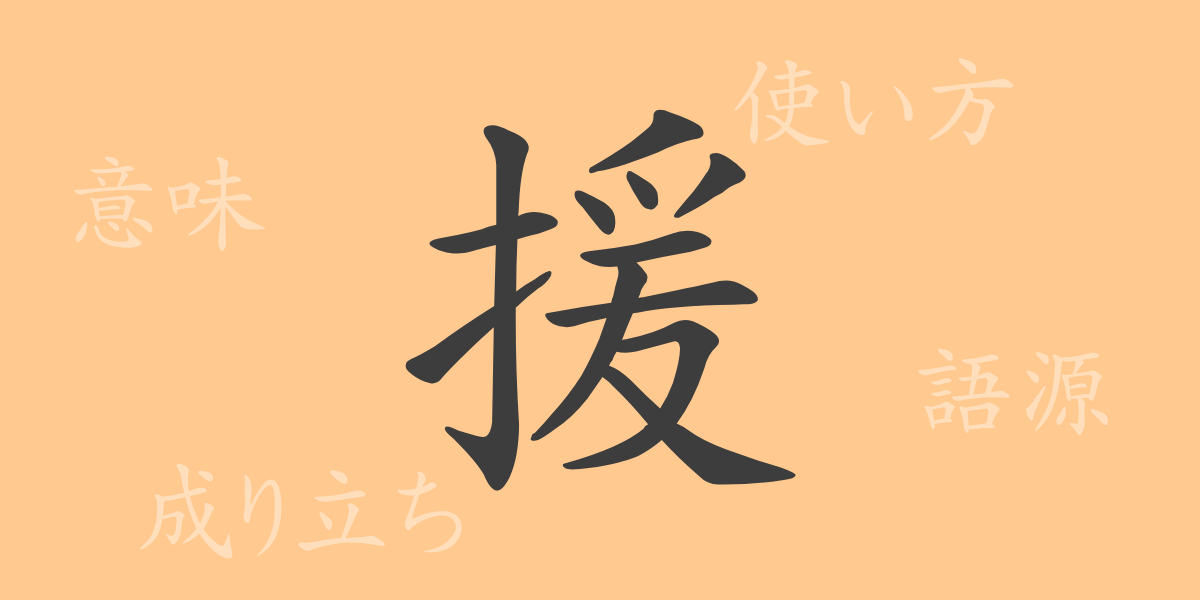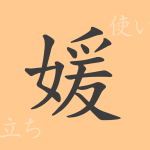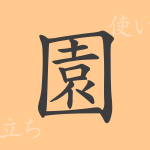“
The beauty of the Japanese language is also reflected in its characters. The common kanji “”援”” (En) plays an important role in the daily life and culture of Japanese people. In this article, we will delve into the full picture of “”援”” (En), from its etymology to its meaning, usage, and even its reading and stroke count. We will also introduce idioms and phrases that use this kanji and unravel their deep meanings.
The Origin (Etymology) of 援 (En)
The kanji “”援”” (En) is composed of “”扌”” (Tehen), meaning hand, and “”爰”” (En), meaning army. This “”爰”” (En) holds the meaning of indicating a place or the path leading to it. Therefore, the etymology of “”援”” (En) comes from the connotation of guiding or supporting something by hand. From ancient times, it has been used to represent the concept of receiving or lending assistance and support.
The Meaning and Usage of 援 (En)
The basic meaning of “”援”” (En) refers to the acts of “”helping,”” “”supporting,”” and “”pulling.”” Specifically, it is used to express receiving support or assistance from others or providing such support. This kanji is frequently used in the context of social or personal support and can be seen in many idioms and phrases.
Reading, Stroke Count, and Radical of 援 (En)
The kanji “”援”” (En) has basic information such as its reading, stroke count, and radical.
- Reading: The on’yomi is “”en,”” and there is no kun’yomi.
- Stroke Count: 12 strokes in total.
- Radical: 手 (Tehen)
Idioms, Phrases, and Proverbs Using 援 (En) and Their Meanings
There are numerous idioms, phrases, and proverbs in Japanese that include “”援”” (En). Here are some of them.
- 援助 (Enjo): Providing assistance.
- 支援 (Shien): Supporting. Often refers to financial assistance.
- 応援 (Ouen): Helping and encouraging someone or a group trying to achieve something.
- 救援 (Kyuuen): Rescuing from danger or difficulty.
- 援軍 (Engun): Military forces that rush to join allies in battle.
Summary of 援 (En)
The kanji “”援”” (En) is an important character that represents help and support, derived from the image of a supporting hand. In the Japanese language, it is often used in forms such as assistance (Enjo) and cheering (Ouen), symbolizing the spirit of cooperation and solidarity among people. The depth of meaning held by this single character makes us feel the richness of Japanese culture and language. When you come across “”援”” (En) in your daily life, try to recall the history and meaning behind it.
“

























